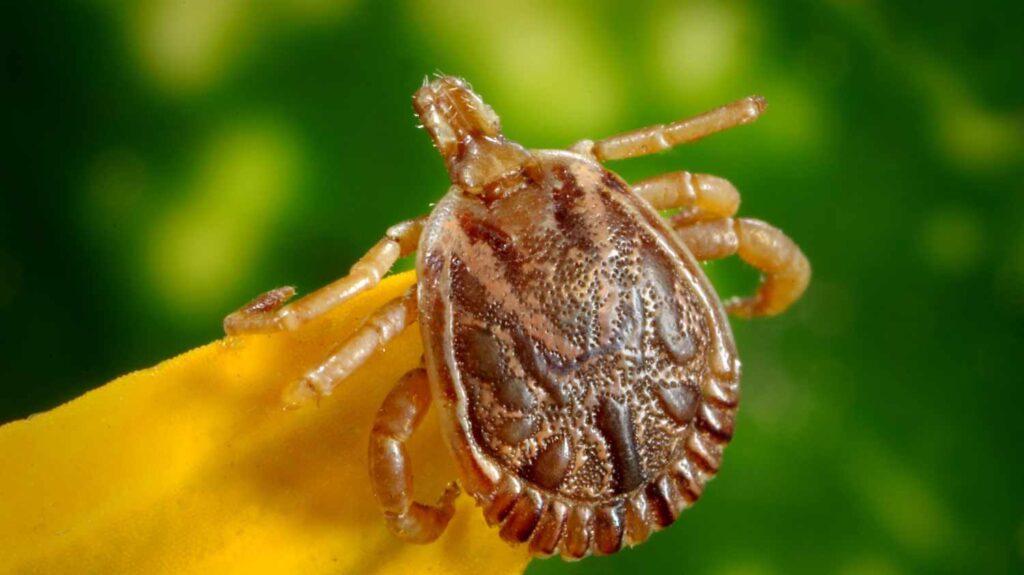Ticks are small, parasitic arachnids that can transmit a number of diseases to humans and animals. The most common tick-borne diseases in the United States include Lyme disease, Rocky Mountain spotted fever, and ehrlichiosis. These diseases can cause a variety of symptoms, including fever, headache, fatigue, and rash. In some cases, they can also lead to more serious complications, such as arthritis, heart problems, and neurological problems.
There are a number of things you can do to avoid ticks and the diseases they carry.

Here are some tips:
- Avoid tick-infested areas. Ticks are most active in wooded areas, tall grasses, and brush. If you are going to be in these areas, be sure to take precautions to avoid ticks.
- Use insect repellent. Insect repellents containing DEET, picaridin, IR3535, Oil of Lemon Eucalyptus (OLE), para-menthane-diol (PMD), or 2-undecanone can help to keep ticks away. Be sure to follow the directions on the product label.
- Wear protective clothing. When you are going to be in tick-infested areas, wear long sleeves, long pants, and socks. Tuck your pants into your socks and your shirt into your pants.
- Check yourself for ticks after being outdoors. Ticks can attach to your skin quickly, so it is important to check yourself for ticks after being outdoors. Pay special attention to your armpits, groin, scalp, and behind your knees.
- Remove ticks promptly. If you find a tick on your skin, remove it promptly. Use a pair of fine-tipped tweezers to grasp the tick as close to the skin as possible and pull it straight out. Do not twist or jerk the tick, as this can causethe head to break off and remain in the skin.
- Dispose of ticks properly. Once you have removed a tick, place it in a sealed container of rubbing alcohol or flush it down the toilet.
In addition to these tips, there are a number of other things you can do to reduce your risk of tick bites. These include:
- Mow your lawn regularly.
- Clear away brush and debris from around your home.
- Stack firewood neatly and in a dry area.
- Keep your pets on a leash when they are outdoors.
- Check your pets for ticks regularly.
By following these tips, you can help to protect yourself and your family from ticks and the diseases they carry.
Here are some additional tips for avoiding ticks:
- If you are taking medication that suppresses your immune system, talk to your doctor about additional steps you can take to prevent tick bites.
- If you live in an area where ticks are common, consider having your yard treated for ticks by a professional.
- If you are bitten by a tick, it is important to see a doctor right away. The doctor can remove the tick and test you for tick-borne diseases.
By taking these precautions, you can help to keep yourself and your family safe from ticks and the diseases they carry.
Here are some natural ways to keep ticks off of you:

- Essential oil mixtures. Some mixtures of essential oils are commercially available as tick repellents. Common essential oils used include lemongrass, cedar, peppermint, thyme, and geraniol.
- Garlic. Garlic is a natural insect repellent that has been shown to be effective against ticks. You can eat garlic cloves, rub garlic oil on your skin, or apply garlic powder to your clothing.
- Tea tree oil. Tea tree oil is another natural insect repellent that has been shown to be effective against ticks. You can apply tea tree oil directly to your skin or add it to a spray bottle of water.
- Vinegar. Vinegar is a natural disinfectant that can help to kill ticks. You can apply vinegar directly to a tick or soak your clothes in vinegar before wearing them.
- Diatomaceous earth. Diatomaceous earth is a natural powder made from the fossilized remains of diatoms. It is an effective desiccant that can help to kill ticks by drying them out. You can sprinkle diatomaceous earth on your clothing, gear, and around your yard.
These are just a few natural ways to keep ticks off of you. If you are concerned about ticks, talk to your doctor about the best way to protect yourself.

